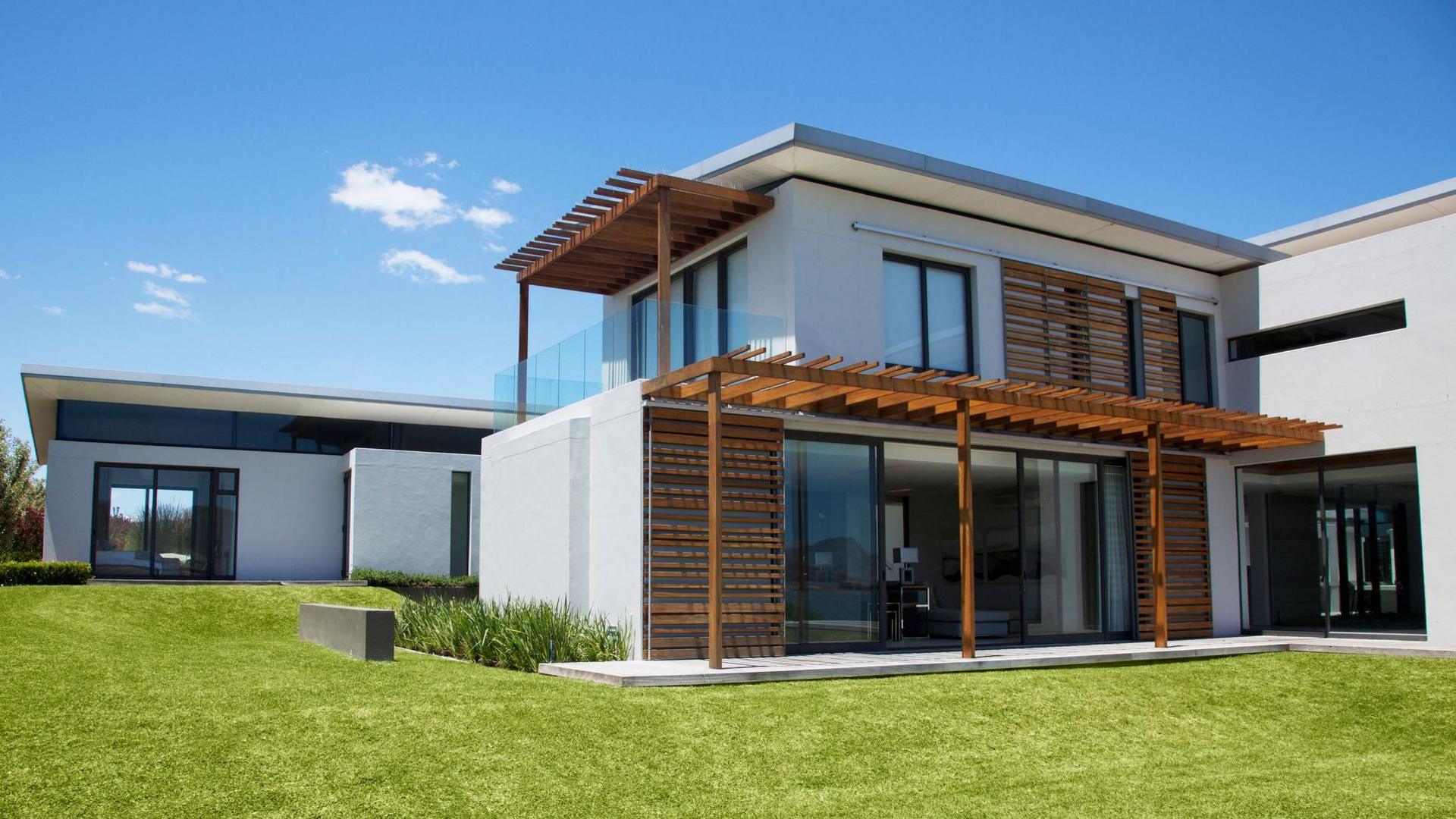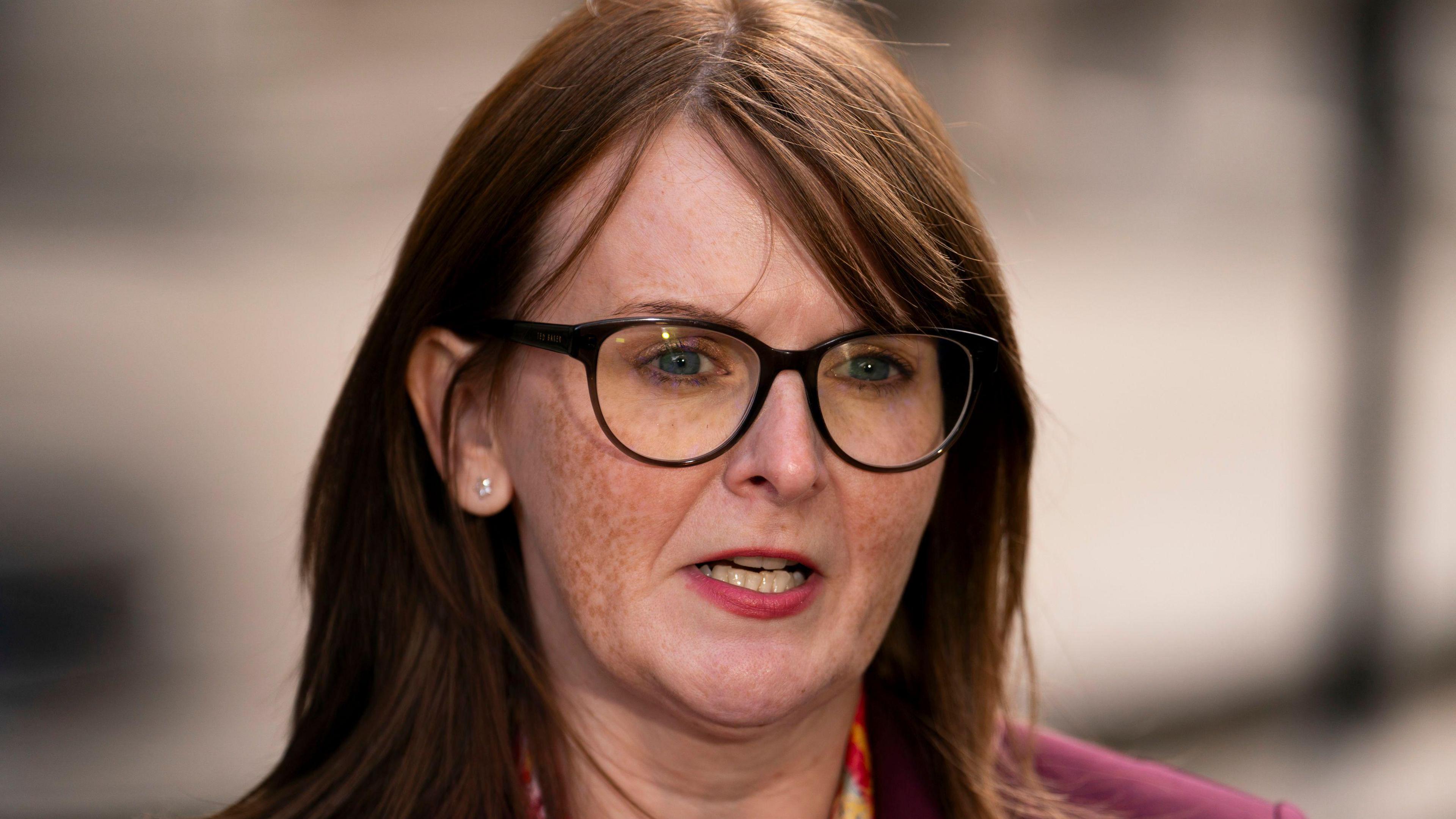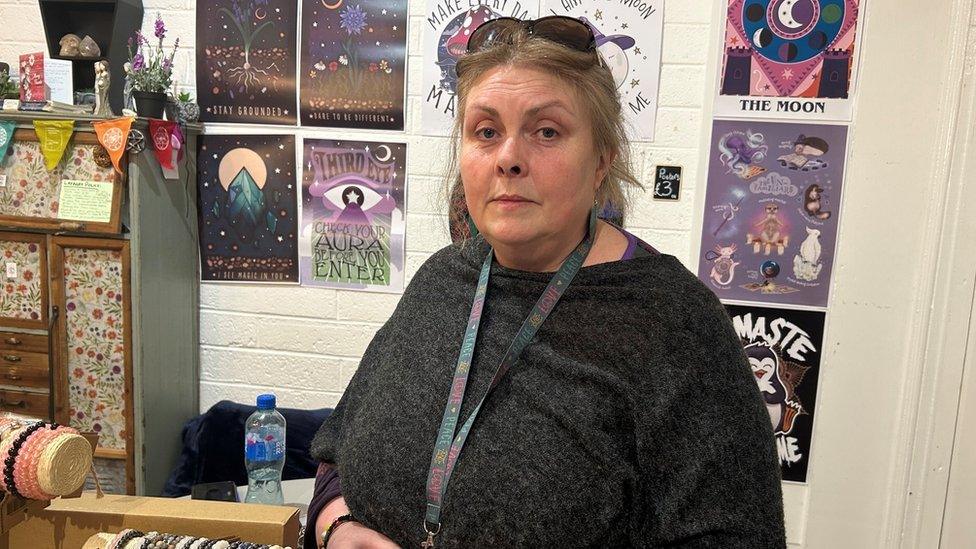High value homes to face higher rate bills

The highest domestic rates bill in Northern Ireland is currently about £4,200
- Published
Northern Ireland's 8,000 most valuable houses are to face higher rates bills under proposals from Stormont's finance minister.
Rates are a tax paid by households and businesses, based on property values.
The rateable value of houses is currently capped and the proposal is to lift that cap.
Currently, no houses are assumed to be worth more than £400,000 at a 2005 valuation.
That means that large homes in affluent areas like north Down currently pay the same rates as much more modest detached houses.
The highest domestic rates bill in Northern Ireland is currently about £4,200.

Caoimhe Archibald said the proposal will ensure a fair rating system in Northern Ireland
Caoimhe Archibald has brought a proposal to the Executive with the intention of seeking agreement for the cap to be lifted in 2025.
She said it is part of a package of short, medium and long term measures aimed at "ensuring our rating system is fair, progressive and equitable."
Archibald described the proposal as a "proportionate elevation" of the cap with the final numbers involved still to be agreed by the Executive.
Lone Pensioner Allowance will remain in place - it is a non-means tested benefit which gives lone householders aged over 70 a 20% reduction on their rates bill.
Other measures to assist ratepayers on low incomes would also remain in place.
Another part of her package is a revaluation of domestic properties, an exercise which was last carried out in 2006.
A revaluation would be "revenue neutral" meaning it would not raise additional money.
Proposal ensures fair rating system - Archibald
There is the possibility of winners and losers, with some people facing higher bills being offset by those facing lower bills.
Archibald said revaluation would be about "ensuring there is a fair distribution of rates across the system".
That exercise is a longer term proposal which would not happen in the lifetime of the current Assembly.
She also spoke to BBC News NI about Wednesday's Westminster budget, saying the Chancellor needs to honour her promise of "no return to austerity".
Archibald said the Executive is expecting to get confirmation that Stormont will get an additional £500m from the government for 2024.
She said once there is "substantive clarity" in place Stormont can undertake a budget reallocation exercise known as a monitoring round.
Archibald intends to publish a draft budget for 2025/26 before the end of 2024.
Once published it will go out for a 12 week public consultation before being debated by the Assembly and then be in place for the start of the financial year in April 2025.
'Unpaid rates'
Speaking on BBC Radio Ulster’s Talkback Programme East Antrim MP Sammy Wilson said he did not believe the "£2m the minister intends to raise from this exercise is going to impress very many people”.
“There is an immediate source of revenue available to her - currently there is about £154m of unpaid rates. We have written off £64m pounds of rates because people haven’t paid," he added.
Analysis: 'Not about squeezing the rich'
This is part of a broader package of measures which the minister says she wants to bring forward to reform rates in Northern Ireland, some of which could happen pretty quickly - such as the rates cap.
What former Secretary of State Chris Heaton-Harris previously proposed was to remove the cap entirely, but that would have led to a situation where some houses would be paying rates bills of £25,000 a year – more than they would in the most affluent areas of London.
What Archibald is proposing is much more modest - which is to increase the cap so that people owning the most valuable houses will pay a bit more but there would still be a cap in place.
To illustrate how the cap functions at the moment – if you look on some of the property listing websites locally you can see a house in east Belfast on the market for about £600,000, and you look elsewhere and there is an 11 bedroom mansion in Cultra for £3.5m.
The difference in the rates bills for those two houses is £15 a year.
The thrust of this policy is not about squeezing the rich.
It is understood that the proposal for lifting this cap quite modest and the amount of additional revenue it raises would only be in the single digit millions.
The minister needs to get the support of the rest of the Executive, and that support would need to come pretty quickly if some of these measures were to be in place for the new financial year.
Related topics
- Published11 September 2024

- Published5 April 2024
